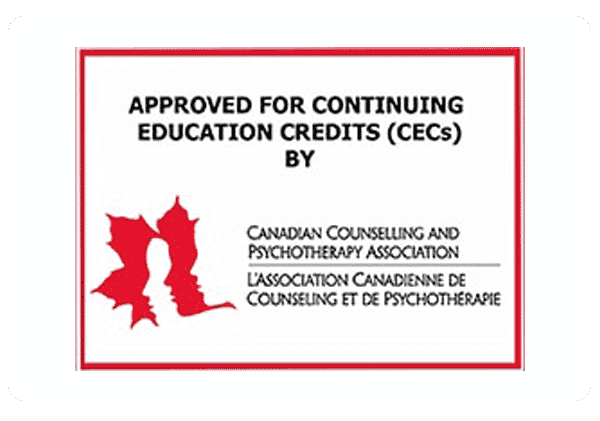Vicarious Trauma (Secondary Trauma) – Joelle Rabow Maletis
Vicarious trauma is the experience of mentally, physically or emotionally absorbing someone else’s first hand trauma after hearing, seeing, or being told about traumatic events. It is typically seen in therapists, dispatchers, child abuse/pornography detectives, or human trafficking officers due to the amount of secondary trauma they are exposed to. There is more research availability regarding vicarious trauma in military, LEO, first responder, and emergency medical teams whose partners, spouses, and family experience vicarious trauma more than the general population. This form of trauma shares similar
responses and symptoms to PTS and if gone untreated can develop into PTSD. Additionally, untreated vicarious trauma can lead to burnout, compassion fatigue, and moral injury resulting in changes in behavior, mood, and impaired daily functioning.
Moral injury is a type of psychological distress that occurs when an individual experiences a violation of their moral or ethical beliefs or values. It can occur in situations where an individual is exposed to events or actions that conflict with their sense of right and wrong, such as in combat situations or in witnessing or participating in unethical behavior. Compassion fatigue and burnout are increased and become co-occurring with having heard, seen, or been told about the traumatic events of others.Other co-occurring medical and somatic conditions are often present such as alcohol/substance abuse and/or misuse, headaches, eating disorders, risky behaviors, and illnesses. Signs of vicarious trauma include, but are not limited to anger/irritation, sleep difficulties, controlling behaviors, road rage, low self esteem, and self harming behaviors. Healing from trauma can be a complex and challenging process, and it is important for individuals to seek professional help from a mental health provider with experience in treating trauma-related conditions to manage their symptoms and move forward in their recovery. Read More
Treatment for vicarious trauma can involve a combination of psychotherapy and support groups. Psychotherapy may include CPT (cognitive processing therapy), solution focused therapy, mindfulness-based interventions as well as Post Traumatic Growth (PTG). Trauma-informed therapy is an approach to therapy that recognizes the impact of trauma on an individual’s mental, physical, and emotional health. It is based on the understanding that trauma can have long-lasting effects on an
individual’s functioning and well-being, and that effective treatment requires a sensitive and compassionate approach. By seeking help from a trauma informed therapist, those struggling with vicarious trauma can learn how to accept the here and now and appreciate life and the trauma that paved the way which is known as post traumatic growth.
TRAINING information
Vicarious trauma is the experience of mentally, physically or emotionally absorbing someone else’s first hand trauma after hearing, seeing, or being told about traumatic events. It is typically seen in therapists, dispatchers, child abuse/pornography detectives, or human trafficking officers due to the amount of secondary trauma they are exposed to. There is more research availability regarding vicarious trauma in military, LEO, first responder, and emergency medical teams whose partners, spouses, and family experience vicarious trauma more than the general population. This form of trauma shares similar
responses and symptoms to PTS and if gone untreated can develop into PTSD. Additionally, untreated vicarious trauma can lead to burnout, compassion fatigue, and moral injury resulting in changes in behavior, mood, and impaired daily functioning.
Moral injury is a type of psychological distress that occurs when an individual experiences a violation of their moral or ethical beliefs or values. It can occur in situations where an individual is exposed to events or actions that conflict with their sense of right and wrong, such as in combat situations or in witnessing or participating in unethical behavior. Compassion fatigue and burnout are increased and become co-occurring with having heard, seen, or been told about the traumatic events of others.Other co-occurring medical and somatic conditions are often present such as alcohol/substance abuse and/or misuse, headaches, eating disorders, risky behaviors, and illnesses. Signs of vicarious trauma include, but are not limited to anger/irritation, sleep difficulties, controlling behaviors, road rage, low self esteem, and self harming behaviors. Healing from trauma can be a complex and challenging process, and it is important for individuals to seek professional help from a mental health provider with experience in treating trauma-related conditions to manage their symptoms and move forward in their recovery. Read More
Treatment for vicarious trauma can involve a combination of psychotherapy and support groups. Psychotherapy may include CPT (cognitive processing therapy), solution focused therapy, mindfulness-based interventions as well as Post Traumatic Growth (PTG). Trauma-informed therapy is an approach to therapy that recognizes the impact of trauma on an individual’s mental, physical, and emotional health. It is based on the understanding that trauma can have long-lasting effects on an
individual’s functioning and well-being, and that effective treatment requires a sensitive and compassionate approach. By seeking help from a trauma informed therapist, those struggling with vicarious trauma can learn how to accept the here and now and appreciate life and the trauma that paved the way which is known as post traumatic growth.
Learning Objectives
1. Discuss the different types of traumas: Post Traumatic Stress (PTS), Post Traumatic Stress Disorder (PTSD), Complex Post Traumatic Stress Disorder (C/PTSD), Vicarious (Secondary Trauma) and Micro versus Macro Traumas.
2. Understand moral injury and the impact of this on suicidal ideation.
3. Discuss and develop trauma-informed practices, skills and tools to help those who’ve experienced trauma.
4. Understand how trauma develops and impacts the mind-body-spirit connection.
5. Understand how to move forward using Post Traumatic Growth (PTG) techniques.
6. Comprehend and implement the “GROWTH FORMULA” to help move trauma into post traumatic growth (PTG).
About the Speaker
 Joelle is a world renowned international speaker, psychotherapist, PTSD and trauma expert. Her passion is mentoring, coaching, and supporting people while overcoming struggles that are keeping them from living a meaningful and balanced life full of fulfillment, joy, and contentment. Joelle started JRM&A Inc. to help others discover their hopes, dreams and abilities to thrive through adversity, trauma and mental challenges. Her career highlights include being a guest speaker on ABC’s 60 Minutes: Beyond the Headlines, Switch YouTube Live host, HIRE Vets Medallion Award recipient , and several Outstanding Achievement Awards for Top Female Executive.
Joelle is a world renowned international speaker, psychotherapist, PTSD and trauma expert. Her passion is mentoring, coaching, and supporting people while overcoming struggles that are keeping them from living a meaningful and balanced life full of fulfillment, joy, and contentment. Joelle started JRM&A Inc. to help others discover their hopes, dreams and abilities to thrive through adversity, trauma and mental challenges. Her career highlights include being a guest speaker on ABC’s 60 Minutes: Beyond the Headlines, Switch YouTube Live host, HIRE Vets Medallion Award recipient , and several Outstanding Achievement Awards for Top Female Executive.
CPD/CE
CPD / CE / NBCC credits available: 6
How do I receive these credits?
The participant must pass the multiple-choice test with a minimum score of 80%. There is a maximum of three attempts to achieve this.
The post-test is included in the price of the training.
Does my regulatory body accept the credits?
The CPD & CE credits awarded can be used towards your declaration to any governing regulatory body in your state or country, provided the content is relevant to your discipline.
Our trainings are accredited by:
– The CPD Group, London
– Canadian Counselling and Psychotherapy Association
– Australian Counselling Association
– National Board of Certified Counselors (NBCC)






